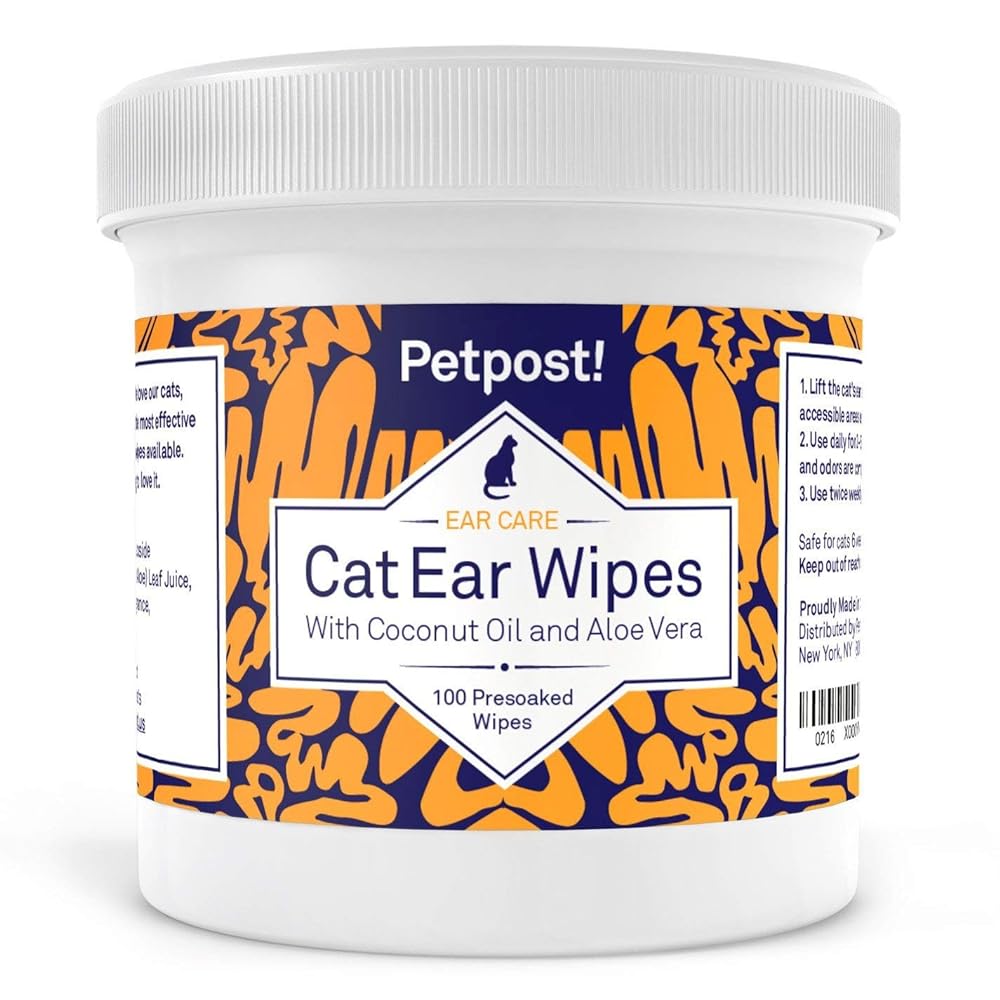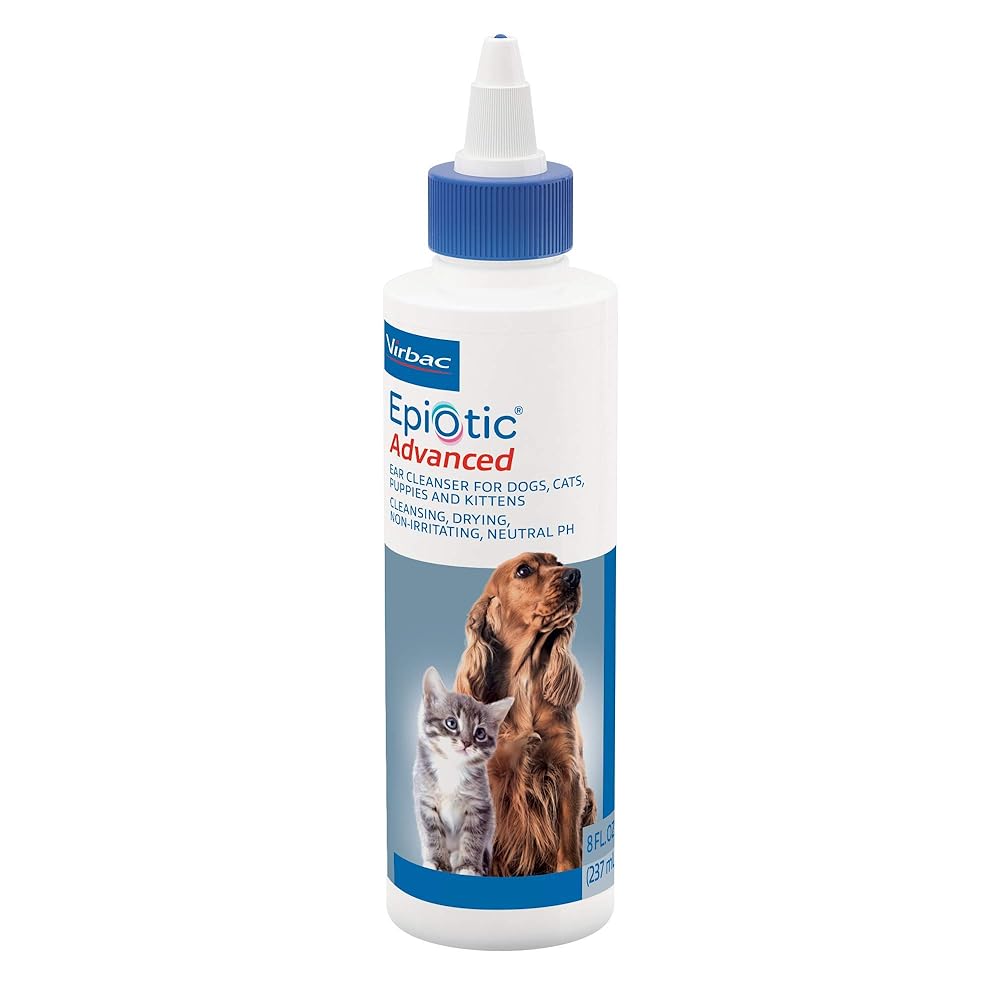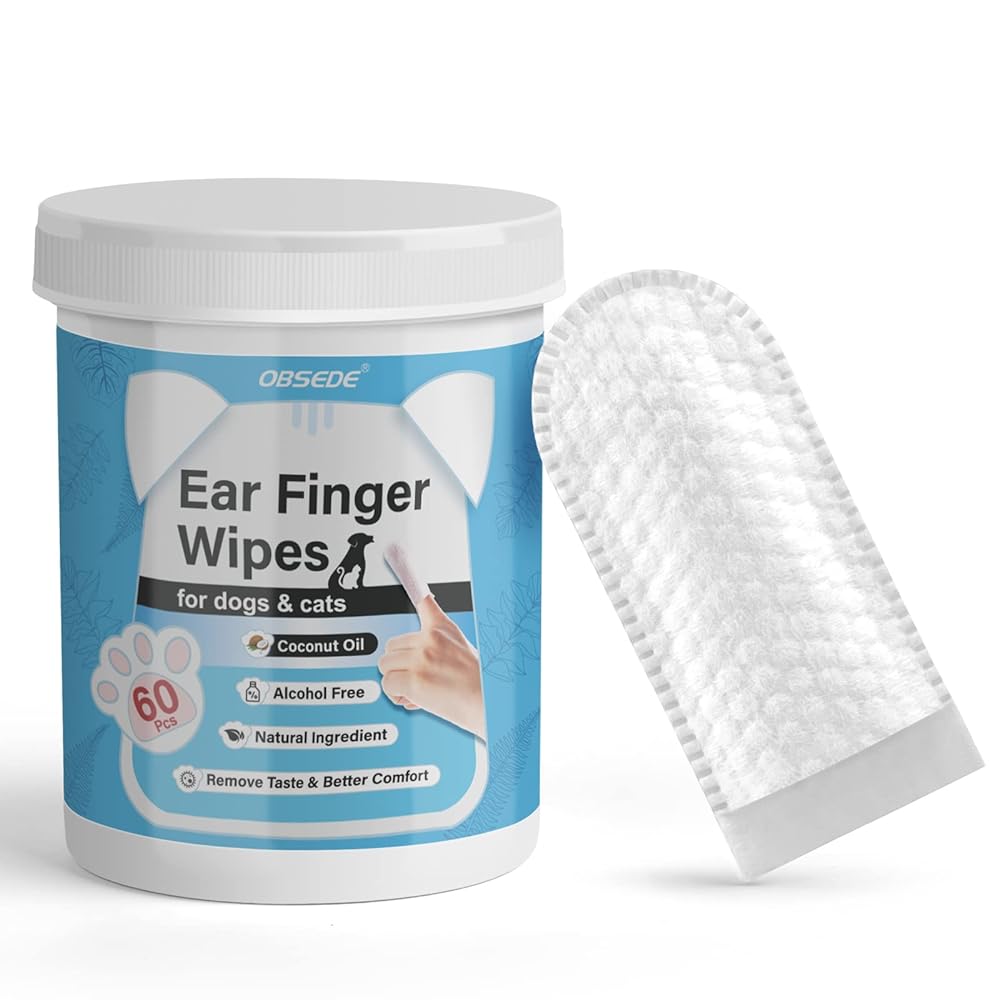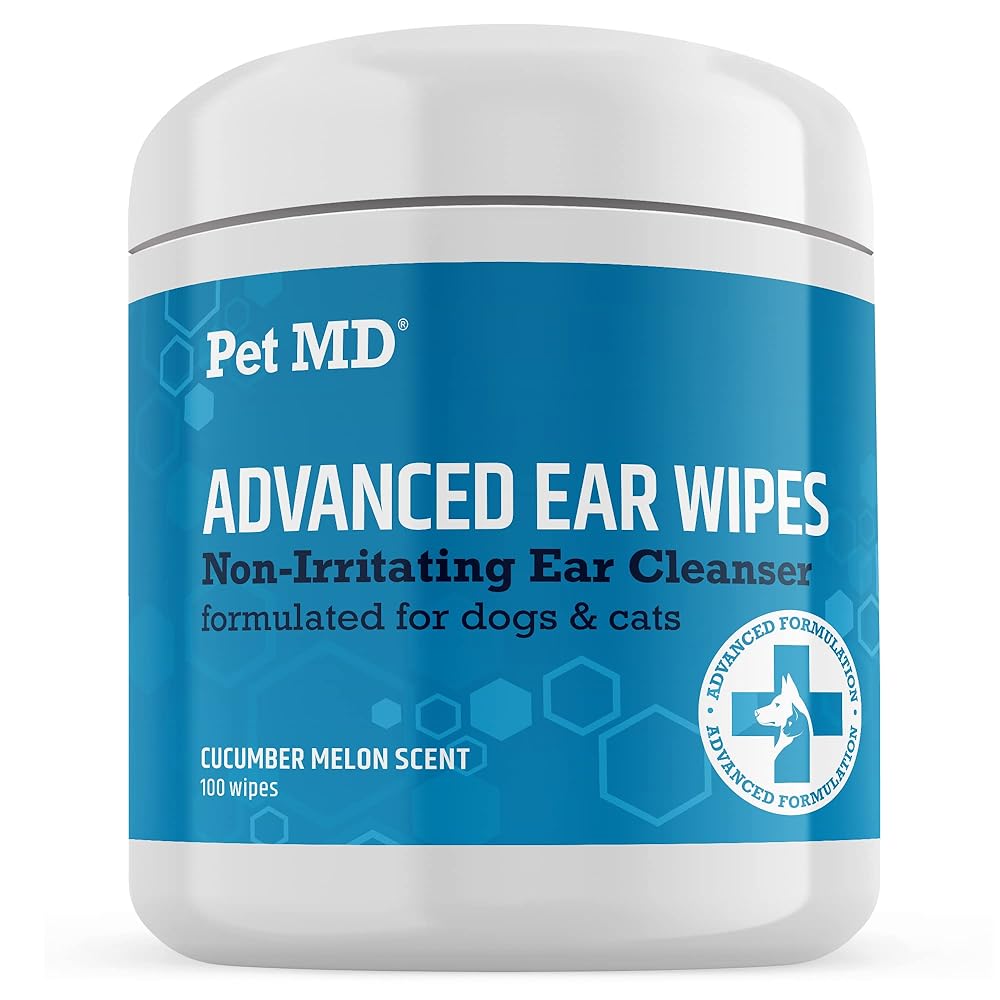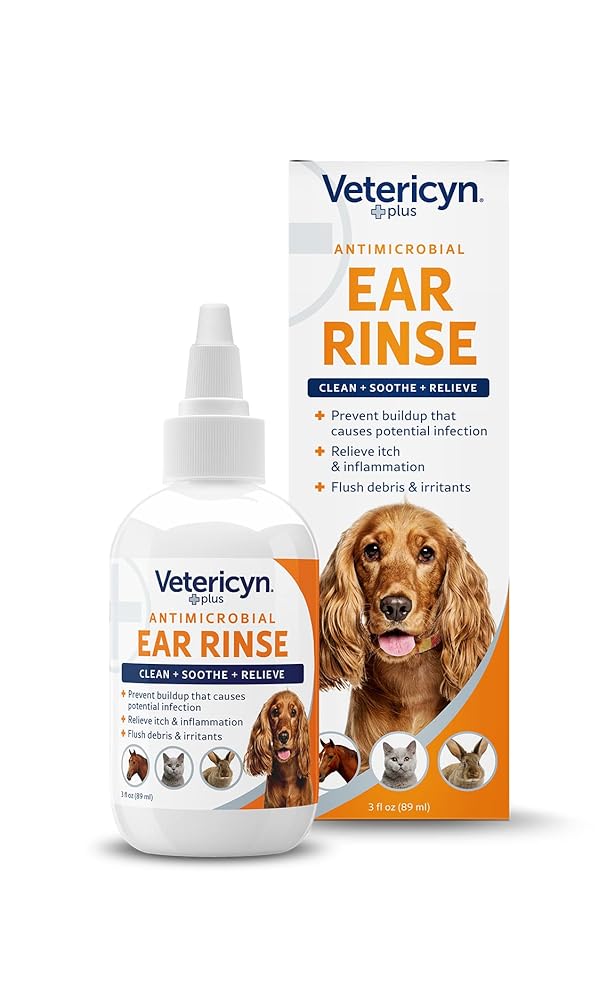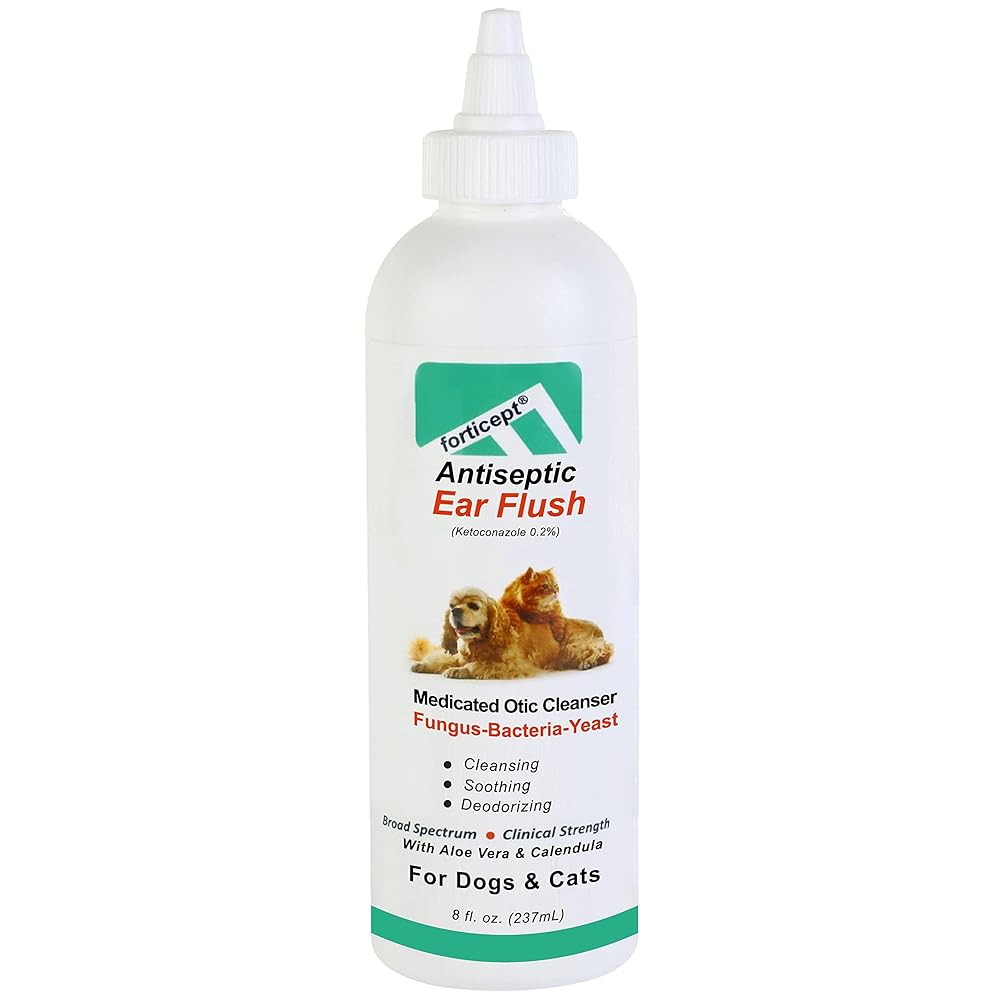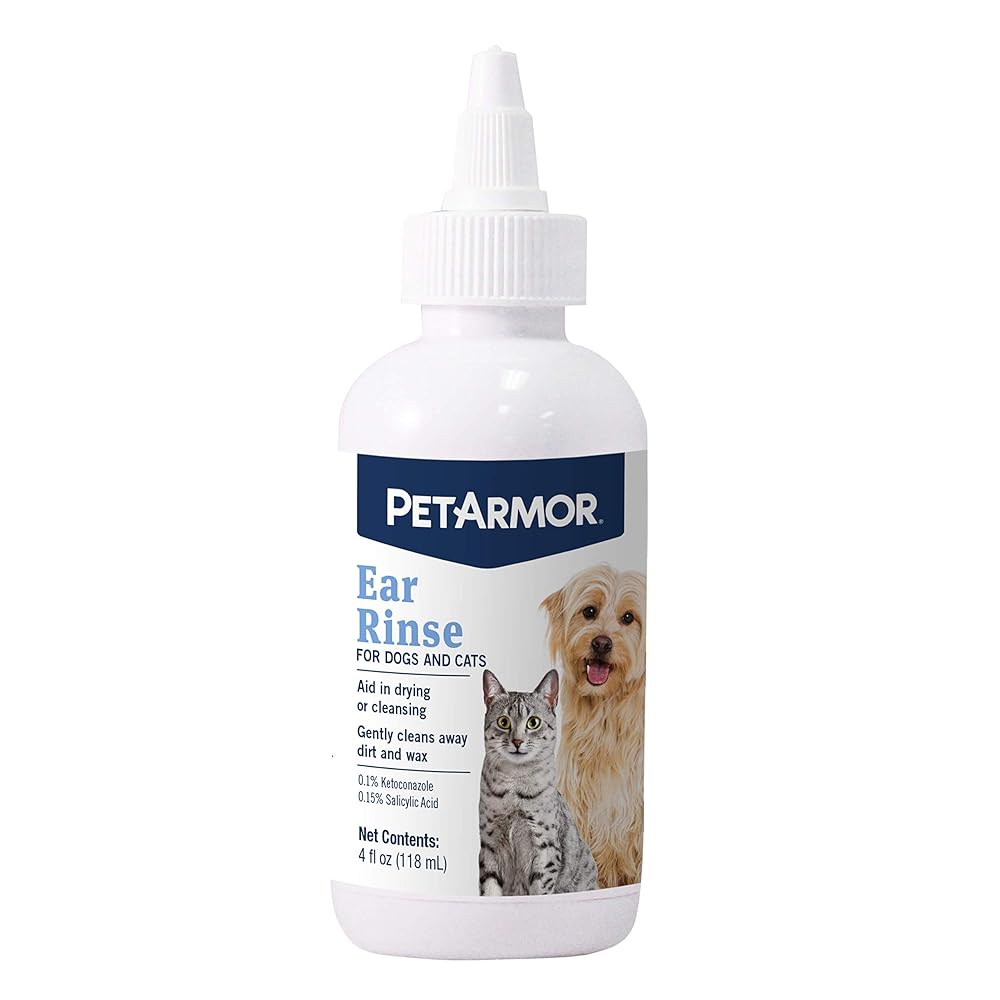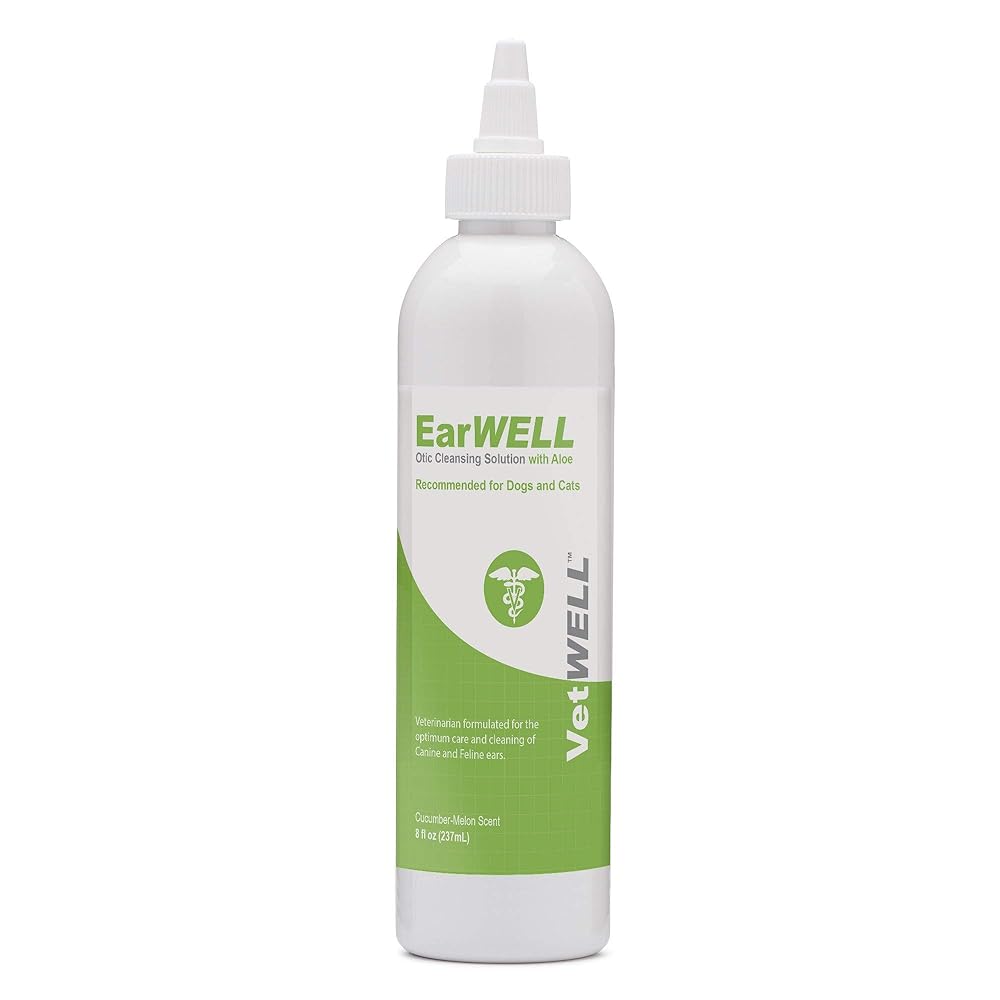Ear health is a critical aspect of your cat’s overall well-being that often gets overlooked. Problems like ear mites, wax buildup, or infections can not only cause discomfort but may also lead to more severe health issues if left untreated. Thankfully, regular ear cleaning can be an effective preventative measure. This article aims to guide you through selecting the best cat ear cleaners, taking into consideration factors like ease of application, effectiveness, and ingredient safety.
#1 – Veterinary Formula Clinical Care Ear Therapy, 4 oz. – Cat and Dog Ear Cleaner to Help Soothe Itchiness and Cleans The Ear Canal from Debris and Buildup That May Cause Infection
The Veterinary Formula Clinical Care Ear Therapy is a cat and dog ear cleaner specifically designed to soothe itchiness and clean the ear canal from debris and buildup that may cause infection. It helps promote healthy ear canals and breakdown buildup that may be causing foul odors and itching. This gentle and effective ear wash is suitable for sensitive ears and is affordable for daily care and maintenance.
Best For: Best on a budget
#2 – Petpost | Cat Ear Cleaner Wipes – 100 Ultra Soft Cotton Pads in Coconut Oil Solution – Treatment for Removing Cat Ear Dirt & Wax
The Petpost Cat Ear Cleaner Wipes are a highly effective solution for removing wax, dirt, and debris from a cat’s ears. These wipes are preferred by vets and groomers as they are safer than traditional treatments that contain harsh chemicals. The wipes are made from soft cotton and are easy to use, providing a comfortable experience for the cat.
#3 – Virbac Epi-Otic Advanced Ear Cleanser for Dogs & Cats, 8 oz
The Virbac Epi-Otic Advanced Ear Cleanser is an 8 oz solution designed for routine cleansing of sensitive ears in dogs and cats. It effectively removes debris and excessive wax, helping to maintain ear health. With a low pH, it is recommended for pets with chronic otitis externa.
Best For: Pets with chronic otitis externa and sensitive ears.
#4 – OBSEDE Ear Cleaner Finger Wipes, Grooming Kit Care for Dogs and Cats Regular Soothing Odor Control Reduce Dirt Wax Build Up Pet Supplies Easy to Use Fresh Coconut Scent, 60 Count
The OBSEDE Ear Cleaner Finger Wipes are a grooming kit for dogs and cats that help reduce dirt and wax build-up in their ears. The wipes have a gentle cleaning and odor-control formula that is safe to use on pets. They are designed with a convenient finger wipe design for easy use and come in sealed packaging for freshness.
Best for: Regular ear cleaning and soothing odor control in pets.
#5 – Pet MD Cat and Dog Ear Cleaner Wipes – Advanced Otic Veterinary Ear Cleaner Formula – Dog Ear Infection Treatment – 100 ct
The Pet MD Cat and Dog Ear Cleaner Wipes are an advanced veterinary formula designed to clean, deodorize, and prevent ear infections in pets. The wipes are made with a cucumber melon scent to reduce foul odors and leave a pleasant smell. They are convenient and easy to use, making them a preferred alternative to ear flushes or drops.
Best For: Pet owners on a budget.
#6 – Vetericyn Plus Dog Ear Rinse | Dog Ear Cleaner to Soothe and Relieve Itchy Ears, Safe for Cat Ears, Rabbit Ears, and All Animal Ear Problems. 3 ounces
The Vetericyn Plus Dog Ear Rinse is a pet ear cleaning solution that is designed to clean and relieve itchy ears in dogs, cats, and other animals. It helps to remove buildup that can cause bad odor and potential ear infections. This ear rinse is antibiotic-free, non-toxic, and pH-balanced, making it safe for regular use. Veterinarians recommend this product to support pet ear health. Made in the USA by a trusted company in animal health products.
Best For: Relieving itchy ears and preventing ear infections.
#7 – Forticept Dog Ear Infection Treatment, Dog Ear Cleaner, Itch Relief Cat and Dog Ear Wash Flush 8 oz
The Forticept Dog Ear Infection Treatment is an ear cleaner for dogs and cats that helps remove wax, dirt, and other buildup. It also provides itch relief for fungal infections, insect bites, contact dermatitis, and other ear infections. Made in the USA, this product is easy to use and can be applied twice a day for quick results.
Best For: Treating and preventing ear infections in dogs and cats.
#8 – PetArmor Ear Rinse for Dogs & Cats, 4 oz
PetArmor Ear Rinse is a 4 oz solution for dogs and cats that effectively removes dirt, wax, and damaged tissues from their ears. It helps keep the ears dry to prevent infections and comes with an easy applicator nozzle. With its convenient size and effectiveness, it is a reliable option for pet owners looking to maintain their pets’ ear health.
Best For: Maintaining pet ear health on a budget. (best on a budget)
#9 – VetWELL Ear Cleaner for Dogs and Cats – Otic Rinse for Infections and Controlling Ear Infections and Odor in Pets – 8 oz (Cucumber Melon)
The VetWELL Ear Cleaner is a veterinarian-formulated solution for cleaning and deodorizing the ears of dogs and cats. This ear cleanser is designed to be safe and gentle for daily use, without causing any stinging or burning sensations. It effectively eliminates wax, fluid, dirt, and debris, and helps relieve ear infections, itching, scratching, and head shaking. Made in the USA in federally regulated manufacturing facilities, this product ensures quality and safety.
Best For: Safe and effective everyday ear cleaning for pets.
When Should I Clean My Cat’s Ears? When Should I Not?
Cleaning your cat’s ears is an important aspect of their overall health maintenance, but timing and circumstances are key. Here’s when you should and should not clean your cat’s ears:
When You Should Clean Your Cat’s Ears:
- Routine Maintenance: Adult cats generally benefit from ear cleaning every two to four weeks, but the frequency can vary based on your cat’s grooming habits and lifestyle.
- After Swims or Baths: If your cat is one of the few who enjoys water, it’s a good idea to clean their ears after they swim or take a bath to remove any trapped moisture, which can lead to infections.
- Observable Dirt or Wax Buildup: If you notice a significant amount of dirt or waxy buildup during a regular check, it might be time for a cleaning.
- Post-Veterinary Recommendation: Sometimes after a medical procedure or treatment for ear issues, a vet will recommend more frequent cleanings.
When You Should Not Clean Your Cat’s Ears:
- If Signs of Infection Are Present: Symptoms like redness, excessive wax, bad odor, or discharge could be signs of an ear infection or other medical issue. Cleaning at this stage could worsen the condition and you should consult a veterinarian for diagnosis and treatment.
- Immediately After Applying Ear Medication: If your cat is undergoing treatment for an ear issue and requires medication, do not clean the ears unless directed by your vet as it can remove the medication.
- If Your Cat is Agitated or Stressed: An anxious cat can make ear cleaning difficult and stressful for both of you. Wait for a time when your cat is calm and relaxed.
- Kittens: Very young kittens generally do not need their ears cleaned as they are still in a relatively protected environment. However, consult your vet for age-appropriate advice.
Remember, always consult your veterinarian for personalized guidance on ear cleaning, especially if you notice any symptoms or irregularities.
What Should I Look for When Choosing a Cat Ear Cleaner?
When selecting a cat ear cleaner, there are several factors you should consider to ensure you’re choosing a product that’s safe, effective, and appropriate for your feline friend:
- Ingredients: Look for an ear cleaner with natural, gentle ingredients that effectively break down wax and debris without irritating the sensitive skin in the ear canal. Avoid products with harsh chemicals or alcohol, as these can cause discomfort or dryness.
- pH Balanced: The ear cleaner should be pH balanced specifically for cats. The pH level of a cat’s ear is different from that of humans and even dogs, so it’s crucial to choose a cleaner that maintains this balance.
- Ease of Application: Choose a product with a simple application method, whether it be a squirt bottle, dropper, or pre-soaked pads. The easier it is to apply, the less stressful the experience will be for you and your cat.
- Veterinarian-Recommended: If possible, opt for a cleaner that is recommended by veterinarians. This is often a good indicator that the product is safe and effective for pet use.
- Fragrance-Free: While a pleasant smell might be nice for you, fragrances can irritate your cat’s sensitive ears. It’s best to go with a fragrance-free formula to avoid unnecessary irritation.
- Reviews and Recommendations: Read customer reviews and ask for recommendations from friends, family, or your vet. Real-world experiences can offer valuable insights into how easy and effective a product is.
- Suitability for Your Cat’s Needs: If your cat has specific issues like ear mites, yeast infections, or other medical conditions, make sure the cleaner you choose is formulated to address these concerns without exacerbating the problem.
- Expiration Date: Make sure to check the shelf-life of the product. An expired ear cleaner may not only be ineffective but could also lead to complications.
- Clear Instructions: Ensure that the ear cleaner comes with clear, easy-to-follow instructions for safe and effective use.
Always consult your veterinarian before starting a new ear cleaning regimen, especially if your cat has a history of ear problems or is currently showing signs of ear discomfort.
Frequently Asked Questions About Cat Ear Cleaners
1. What are the main ingredients to look for in a cat ear cleaner?
When choosing an ear cleaner for your cat, look for one with natural and gentle ingredients that effectively remove wax and debris. Avoid products with harsh chemicals or alcohol, as they can irritate your cat’s ears. Instead, seek out ingredients like witch hazel, aloe vera, or chamomile that are known for their soothing properties.
2. How often should I clean my cat’s ears?
The frequency with which you should clean your cat’s ears depends on several factors, including their age, lifestyle, and any existing health conditions. For most adult cats, a routine cleaning every 2-4 weeks is adequate. However, consult your veterinarian for personalized recommendations.
3. Can I use human ear cleaners on my cat?
It’s not advisable to use human ear cleaners on cats. The pH balance and ingredients are formulated for human ears and may not be suitable for cats, potentially causing irritation or an imbalance in the ear’s natural flora.
4. What’s the best way to apply ear cleaner?
Ear cleaners typically come in bottles with droppers or nozzles designed for easy application. Gently restrain your cat, lift the ear flap, and apply the cleaner according to the product’s instructions. Be sure to use a soft cotton ball or gauze to wipe away debris after application.
5. Do I need to consult a vet before using an ear cleaner?
Consulting a vet before starting any new health regimen for your cat is always a good idea. This is particularly important if your cat has had ear problems in the past or is currently showing symptoms like redness, excessive scratching, or discharge.
6. Is it okay to use an ear cleaner for dogs on my cat?
While it might be tempting to use the same ear cleaner for all your pets, it’s generally not recommended. Cats and dogs have different pH balances in their ears, and using a dog-specific product could disrupt this balance and lead to issues in your cat.
7. Are there homemade ear-cleaning solutions that are safe for cats?
While some people opt for homemade solutions like a mixture of water and vinegar, it’s essential to consult your veterinarian before using any homemade remedies. Incorrect formulations can lead to irritation or exacerbate existing issues.
8. How can I tell if my cat has an ear infection?
Symptoms of an ear infection in cats include redness, swelling, bad odor, discharge, and frequent scratching or shaking of the head. If you observe any of these symptoms, consult a veterinarian for a proper diagnosis and treatment plan.
9. Can an ear cleaner treat ear mites?
Ear cleaners can help in the removal of debris and may create an environment less hospitable for ear mites, but they are not a substitute for specific mite treatment. If you suspect your cat has ear mites, consult your vet for diagnosis and treatment options.
10. Can I use an ear cleaner on a kitten?
Very young kittens generally don’t require ear cleaning, but consult your vet for age-appropriate advice. If ear cleaning is necessary for your kitten, be sure to use a gentle, kitten-specific cleaner and follow your vet’s guidelines.
Conclusion: Best Cat Ear Cleaners
Finding the right ear cleaner for your cat can make a significant difference in both their comfort and health. When chosen correctly and used regularly, a quality ear cleaner can prevent wax buildup, combat infections, and even make the task more tolerable for your feline friend. However, it’s crucial to consult your veterinarian for an accurate diagnosis if your cat is showing symptoms like excessive scratching, head shaking, or discharge, as these could be signs of a more serious issue. With the right ear cleaner and a regular cleaning routine, you’re well on your way to keeping your cat’s ears healthy and happy.


